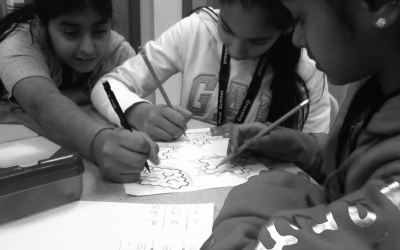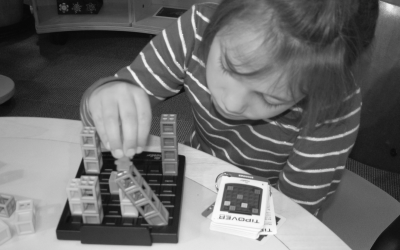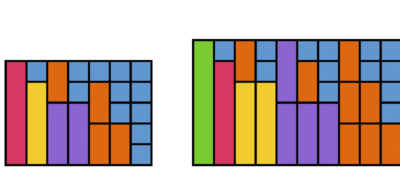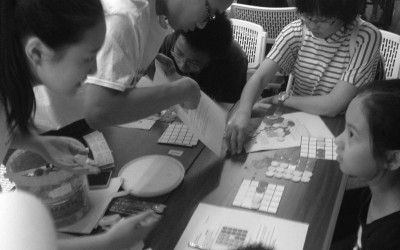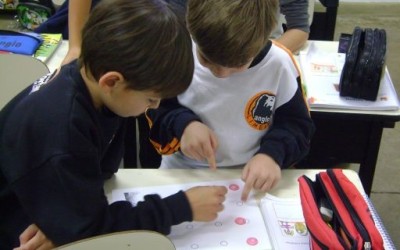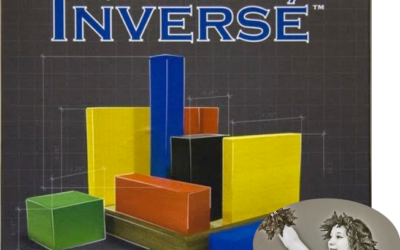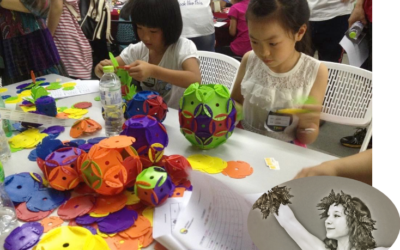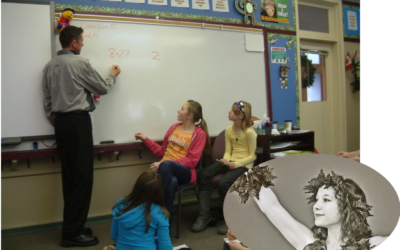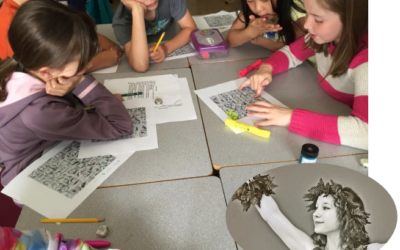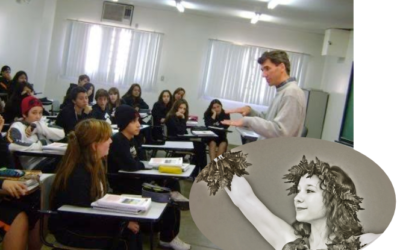Muse of Mathematics
the art and science of teaching mathematics blog
Scarce Paper
I failed yesterday. Background: I encourage students to work in pairs or occasionally triples with a single puzzle-sheet shared between them. In my classes paper is a scarce resource. I love to see co-operative math as in the photo...
The Value of Forgetting
Mathematics is usually taught brick on brick - each brick resting solidly on the ones underneath. This sounds good. Brick on brick mathematics education is capable of building an impressive edifice. Look at the power of the average calculus student after a dozen years...
Mini-Mathematical Universes
To teach the Scientific Method the natural impulse is to turn to the natural world. This needs rethinking. Mini-Mathethatical Universes can be created which students can poke and prod with precision. These universes should be given to students without explanation. My...
Be unhelpful! Be wrong! Be unprepared!
I am most impressed with the advice of the Julia Robinson Mathematics Festival to the volunteers who come to people its tables: Be as unhelpful as possible. This is marvellous advice for educators and parents to follow most of the time. As a parent I struggle...
Erasers – Good or Bad?
Why do we allow students to work in pencil? Sometimes we do it because we want them to erase their mistakes. If done to excess, this is wrong. Mistakes are there to learn from - not to be erased or scribbled out. They should be artfully identified so that teacher and...
Protect the Slow!
Speed is essential, but some curricula value it too much. The core of every mathematics classroom should be problem solving. Ponderous problem solvers need to be protected. I am not making the case against memorizing basic facts. Students absolutely need...
Let’s Abolish Elementary Mathematics
We should abolish the subject of mathematics in elementary school. Why? Because "mathematics" has become synonymous with arithmetic for many educators and parents. Problem solving, which should be at the heart of the classroom experience of mathematics is only given...
Computer Games in the Classroom
I'm agnostic when it comes to computer games. On the negative side: 1) Too many students already have too much screen time at home - the last thing this subset of students need is to have screen time in school. 2) Quality control is lacking. On the positive side: 1)...
Magic in the Classroom
I’ve already put up some magic tricks on MathPickle, but I’d like your input. What place does magic have in the classroom? Mathemagic is great. Some teachers use it to increase their coolness factor, but the primary reason to use mathemagic should be to generate...
Games in the Elementary Classroom
What about the use of games in the classroom? The heart of mathematics education is problem solving. Thinking games pose one problem after another problem - a whole sequence of problems that end with victory or defeat. They fit naturally into a mathematics classroom...
Chaos in the Classroom
In your last post, you ended with a recommendation that teachers maintain a level of classroom chaos so that students didn’t know if they are slow or fast. Yes - I don’t emphasize speed in my assessment of a student, and I want to protect slow students from a negative...
The Illusion of First Discovery
Do you think we over-prompt our students? Prompting is useful to focus the classroom’s attention on one part of a problem. It also helps the teacher steer the class towards a new problem or resource. However, prompting does not provide a shortcut to student...
Multiple Solution Problems
Can you give us another good problem – one that’s possible please. This is a problem I give to my grade 1 students. The Fairy-Tale-King invites you to sit down in front of him… “design for me, a magical castle with beautiful towers.” It turns out that he has enough...
Real World vs. Abstract Problems
The last time we talked you introduced us to cipher-breaking in World War I. I always mention war if I have the opportunity, because that engages the half of the class with excess testosterone 😉 The link to war also connects the problem to the real world. Do all good...
Breaking a Cipher – an example of a good problem
You were going to give us an example of a good problem. Here is a good problem for students tackling percentages, and probability. The problem takes an hour or two… This is an example of some cipher-text created from a Polybius Square. The Germans used a variant of...
What should children learn in the mathematics classroom?
What should children learn in the mathematics classroom? How to think. Is that all? What do you mean; “Is that all?” That is everything! I would even be happy if we got rid of elementary school mathematics classrooms and replaced them with problem-tinkering...
The biggest problem teachers face
What is the biggest problem teachers face? The wide spectrum of student ability. That’s the biggest thing that separates teaching from other learning structures like mentorship, apprenticeship, home-schooling, and self-motivated dabbling. The wide spectrum of student...
If English were taught like mathematics…
It is a privilege to interview the Muse of Mathematics! Not to everybody... Some dismiss me as dull, repetitive, awkwardly obtuse and disconnected from reality, but properly introduced, I promise to entertain and enthrall. How should I introduce you properly? It...
Please use MathPickle in your classrooms. If you have improvements to make, please contact me. I'll give you credit and kudos 😉 For a free poster of MathPickle's ideas on elementary math education go here.
